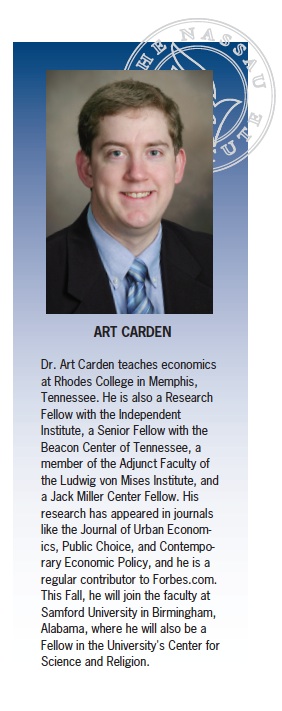Delivered in Nassau, Bahamas at the invitation of the Nassau Institute, May 10, 2012 Revised August 9, 2012.
Dr. Carden is currently assistant professor of economics at the Brock School of Business, Samford University, Birmingham, Alabama, USA.
 Introduction
Introduction
In 2012, Milton Friedman would have turned 100. Fifty years ago, in 1962, he published his classic Capitalism and Freedom, which stands with books like F.A. Hayek’s The Road to Serfdom as one of the twentieth century’s most influential defenses of the free economy. As an economist and a father, I spend a lot of time thinking about my kids’ futures and the legacy I will leave them. The intellectual legacy of Milton Friedman is a legacy of freedom, prosperity, and dignity. If we listen to the lessons that he and others working in the classical liberal tradition have to teach, then ours (and our children’s) is a much brighter future.
I’ve been asked to discuss “The Economic Way of Thinking and Milton Friedman.” We will consider several things. First, we’re going to consider the economic way of thinking and F.A. Hayek’s discussion of “the use of knowledge in society.” Second, we’re going to consider what has happened to countries that have adopted free-market policies in what the economist Andrei Shleifer has called “The Age of Milton Friedman.” Third, we’re going to consider the alternatives to capitalism and the consequences of the use of force in an interventionist society. Finally, I’m going to close with a plea for humility on the part of economists, intellectuals, and policymakers. It will be a plea that originates in the work of Adam Smith and that sits at the core of the classical liberal tradition. First, let’s consider some of the basic principles of economics.

